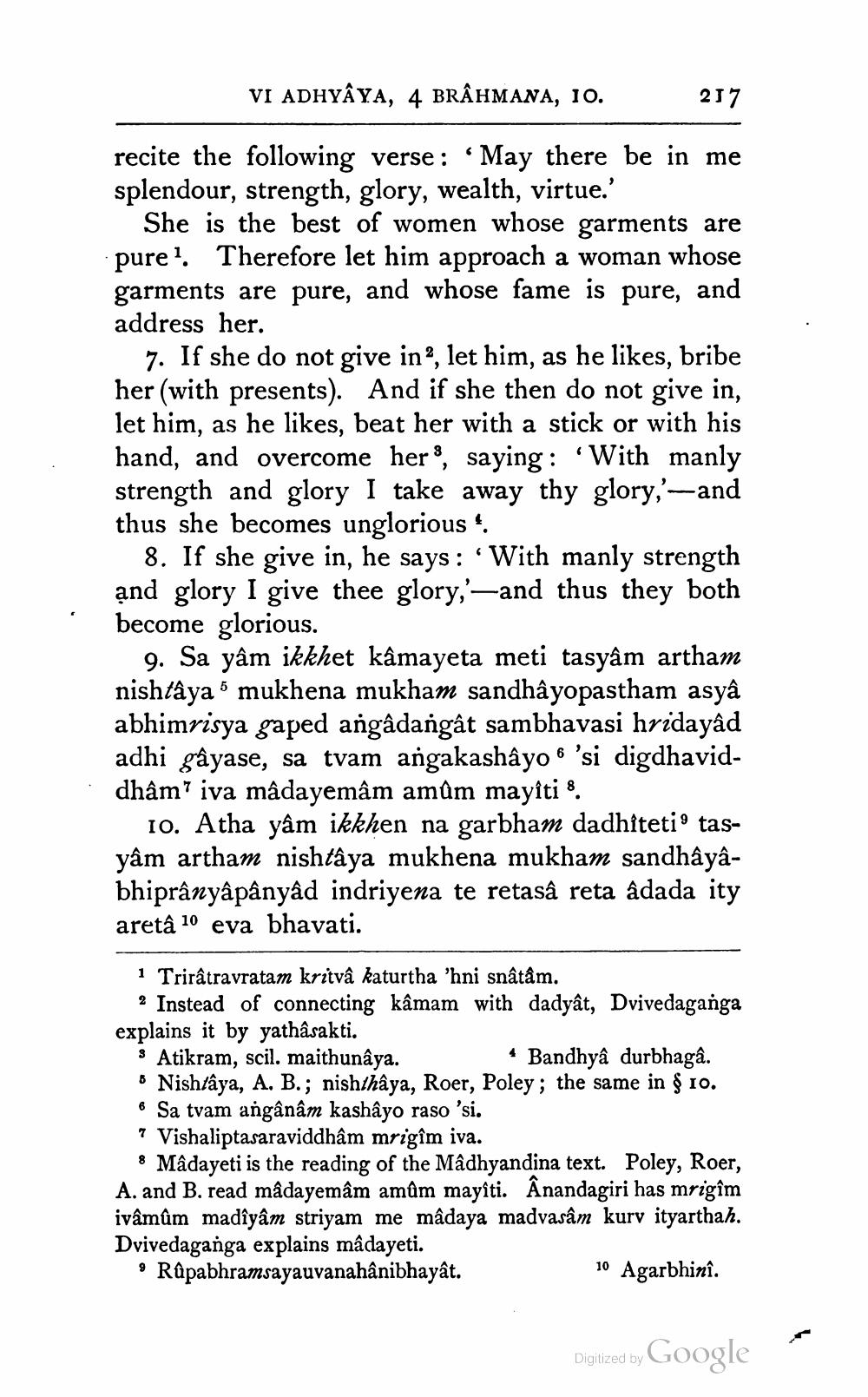________________
VI ADHYAYA, 4 BRÂHMANA, 10.
217
recite the following verse: May there be in me splendour, strength, glory, wealth, virtue.'
She is the best of women whose garments are purel. Therefore let him approach a woman whose garments are pure, and whose fame is pure, and address her.
7. If she do not give in?, let him, as he likes, bribe her (with presents). And if she then do not give in, let him, as he likes, beat her with a stick or with his hand, and overcome her, saying: With manly strength and glory I take away thy glory,'-and thus she becomes unglorious
8. If she give in, he says: "With manly strength and glory I give thee glory,'—and thus they both become glorious.
9. Sa yâm ikkhet kâmayeta meti tasyâm artham nishtâya 5 mukhena mukham sandhâyopastham asyâ abhimrisya gaped angâdangất sambhavasi hridayâd adhi gâyase, sa tvam angakashâyo 6 'si digdhaviddhâm? iva mâdayemâm amũm mayîti 8.
10. Atha yâm ikkhen na garbham dadhitetio tasyâm artham nishtâya mukhena mukham sandhâyâbhiprânyâpânyâd indriyena te retasâ reta âdada ity aretâ 10 eva bhavati.
1 Trirâtravratam kritvâ katurtha 'hni snâtâm.
2 Instead of connecting kâmam with dadyât, Dvivedaganga explains it by yathâsakti. 3 Atikram, scil. maithunaya.
Bandhyâ durbhaga. Nishtâya, A. B.; nishthâya, Roer, Poley; the same in § 10. 6 Sa tvam angânâm kashâyo raso 'si. ? Vishaliptasaraviddhâm mrigîm iva.
8 Mâdayeti is the reading of the Mâdhyandina text. Poley, Roer, A. and B. read mâdayemâm amûm mayiti. Anandagiri has mrigîm ivâmûm madîyâm striyam me mâdaya madvasâm kurv ityarthah. Dvivedaganga explains mâdayeti. , Rûpabhramsayauvanahânibhayât.
10 Agarbhinî.
Digitized by Google
Digitized by




